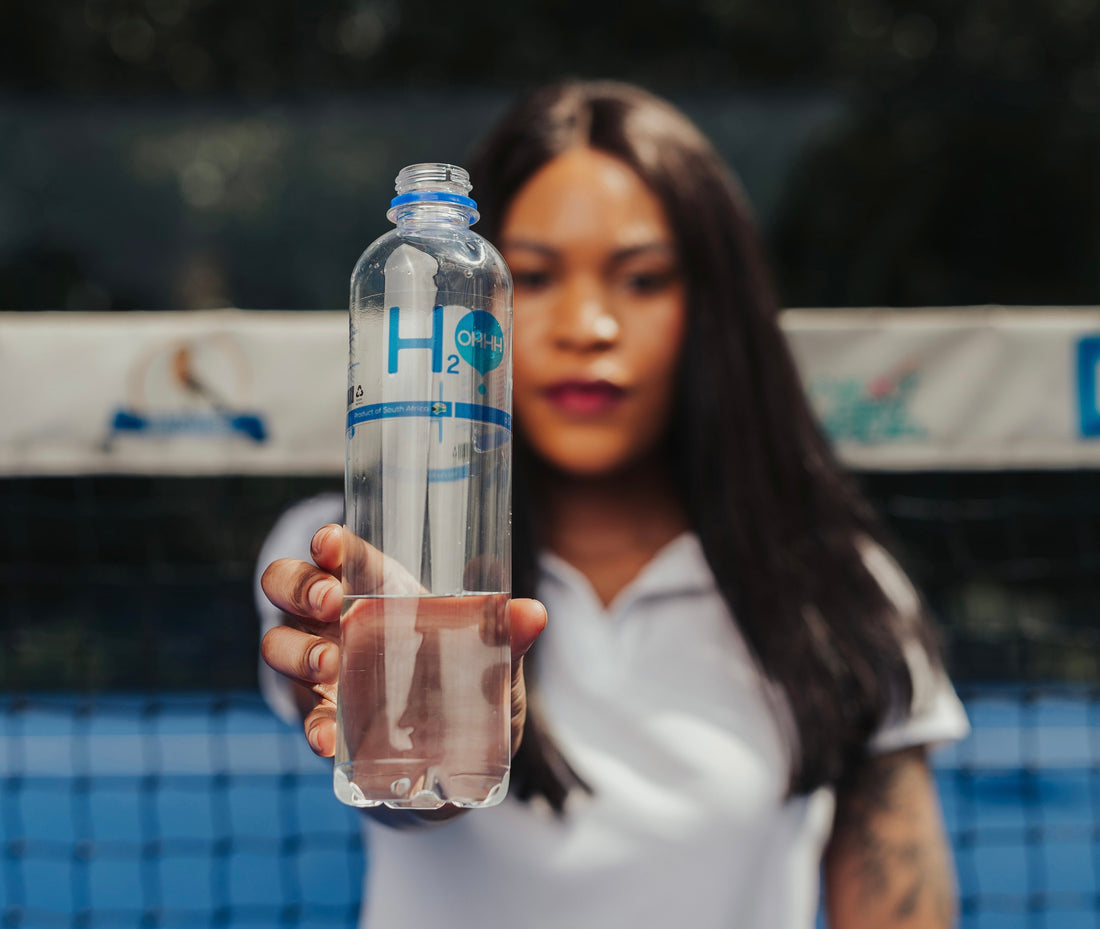
Understanding Dehydration: Causes, Symptoms, Prevention, and the Role of H2OHHH
Share
Written by: Zam Semuyaba

What Is Dehydration?
Dehydration is a condition that occurs when your body loses more fluids than it takes in. This imbalance prevents your body from performing its normal functions effectively. According to the Cleveland Clinic (2023), dehydration is “the lack of adequate water in your body,” and can lead to serious health complications if left untreated. Water is essential for regulating temperature, removing waste, protecting organs, and supporting cellular processes. When fluid loss exceeds intake, dehydration can occur rapidly, especially in vulnerable populations such as infants and the elderly.
What Are the Symptoms of Dehydration?
In Adults:
The symptoms of dehydration in adults can often be mistaken for other health issues, but it's important to recognize the early warning signs:
- Extreme thirst
- Infrequent urination
- Dark yellow urine
- Fatigue
- Dizziness or light-headedness
- Confusion (Mayo Clinic, 2021)
In Infants and Children:
Children can’t always communicate how they feel, so caregivers must be extra vigilant. Symptoms of dehydration in infants and young children include:
- Dry mouth and tongue
- No tears when crying
- No wet nappies for three hours
- Sunken eyes and cheeks
- A sunken soft spot on the top of the head
- Unusual fussiness or lethargy (Mayo Clinic, 2021)
What Causes Dehydration?
There are various factors that contribute to dehydration. These include:
- Inadequate fluid intake: This may occur due to illness, a busy schedule, or lack of access to clean drinking water, particularly during travel or outdoor activities.
- Vomiting and diarrhoea: These symptoms can cause rapid and significant loss of fluids and electrolytes.
- Fever: The higher the body temperature, the more fluids are lost through sweating. When combined with vomiting or diarrhoea, dehydration risk increases substantially.
- Excessive sweating: Physical activity or high environmental temperatures can lead to dehydration, especially when fluids are not adequately replenished.
Understanding these causes is essential for managing and preventing dehydration in various settings and age groups.
How Can You Prevent Dehydration?
Staying hydrated is essential for optimal health. Here are practical tips to avoid dehydration:
- Drink water consistently, even when not feeling thirsty
- Increase fluid intake during illness, particularly with fever, vomiting, or diarrhoea
- Hydrate before, during, and after physical activities
- Wear breathable clothing and seek shade during hot weather
- Choose beverages that replenish electrolytes, especially if you're sweating heavily
Preventative care and education are key to reducing the risk of dehydration in both personal and clinical contexts.
How Is H2OHHH the Solution to Dehydration?
H2OHHH is committed to promoting wellness through hydration by providing high-quality still water in conveniently sized bottles suitable for a variety of lifestyles and needs.
330ml Still Water
This size is ideal for infants, young children, and individuals on the move. It offers a convenient option for parents and caregivers seeking safe hydration for children or for people requiring a compact and accessible water solution throughout the day.

550ml Still Water
Perfect for active professionals, students, and athletes, this size ensures you have enough water to stay hydrated at work, the gym, or during travel. It provides a balance between portability and adequate hydration for adults on the go.

Why H2OHHH?
- High-quality, purified still water
- Practical packaging tailored for hydration on demand
- Suitable for all age groups
- A trusted brand for daily wellness and preventative health care
H2OHHH recognises the essential role hydration plays in health and offers products designed to support well-being in everyday life.